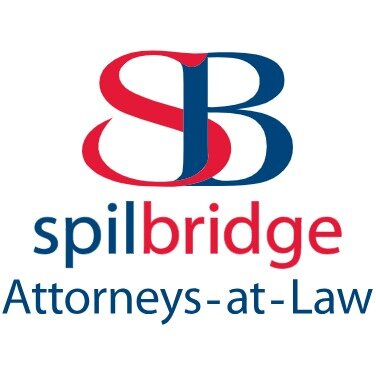Best General Litigation Lawyers in Riga
Share your needs with us, get contacted by law firms.
Free. Takes 2 min.
List of the best lawyers in Riga, Latvia
About Litigation Law in Riga, Latvia
Litigation law in Riga, Latvia, is a robust component of the nation's legal system, dealing primarily with disputes that are settled in court. Riga, as the capital city, plays a pivotal role due to its high concentration of commercial activity and legal resources. Litigation may involve civil, commercial, administrative, or criminal cases. Latvian courts are known for their procedural efficiency, and while the demand for litigation services has grown, the legal system remains efficient and well-regulated. Disputes are resolved in various courts, from district courts to specialized courts, ensuring that cases are treated with due diligence and expertise.
Why You May Need a Lawyer
There are numerous scenarios where individuals or businesses in Riga might require the expertise of a litigation lawyer. Common situations include breach of contract disputes, employment disagreements, debt recovery issues, and real estate conflicts. Additionally, personal injury claims, intellectual property disputes, and consumer protection cases are also prevalent grounds for seeking litigation advice. Handling litigation matters without professional legal guidance can lead to unfavorable outcomes, so having a knowledgeable lawyer can significantly enhance one's chance of successfully navigating the complexities of the legal system.
Local Laws Overview
Litigation in Riga is governed by a mix of civil and administrative procedures set by the Latvian legal framework. The Civil Procedure Law and the Administrative Procedure Law provide guidelines on how legal proceedings should be conducted, who can represent parties in court, and how judgments are enforced. Key elements include strict rules on the admissibility of evidence, fixed timelines for the submission of documents, and the necessity for proper procedural formalities. The Latvian courts emphasize timely resolution and dispute arbitration to prevent prolonged litigation.
Frequently Asked Questions
What should I do if I am considering litigation?
Consult a qualified lawyer to analyze your case, understand your rights, and devise a strategy (possibly involving negotiation or mediation) before proceeding to court.
How long does a typical litigation process take in Riga?
The duration of litigation varies depending on the complexity of the case, but straightforward matters can take several months, while intricate disputes might extend over a year.
Is it mandatory to have a lawyer represent me in court?
While not always mandatory, having legal representation is advisable to understand court procedures and effectively argue your case.
How can I find a reputable litigation lawyer in Riga?
Start by seeking recommendations, researching law firms online, and considering lawyers who specialize in your specific legal issue.
What is the cost of hiring a litigation lawyer in Riga?
Legal fees vary widely based on the lawyer’s experience, the complexity of the case, and the fee structure (hourly rates or fixed fees). It's important to discuss fees upfront.
Can litigation outcomes be appealed?
Yes, parties unsatisfied with a court ruling typically have the right to appeal to a higher court, as per the provisions in Latvian law.
What languages are used in Latvian courts?
The primary language used in court is Latvian, but foreign citizens can request interpretation services if needed.
Are there alternatives to going to court in Riga?
Negotiation, mediation, and arbitration are encouraged as cost-effective and less adversarial alternatives to court litigation.
How do I enforce a court decision in Latvia?
Once a decision is final, it can be enforced through the court's enforcement procedure, involving bailiffs to execute the judgment.
What are the common outcomes of litigation cases?
Outcomes can include financial compensation, court orders enforcing or prohibiting actions, or settlement agreements negotiated outside of court.
Additional Resources
Several resources can assist individuals involved in litigation in Riga. The Court Administration of Latvia provides official information and procedural guidance. The Latvian Bar Association offers a directory of authorized lawyers. Legal aid services are also available for those unable to afford legal representation, ensuring access to justice for all citizens.
Next Steps
If you believe you need legal assistance in litigation, start by gathering all relevant documents and evidence related to your case. Contact a professional lawyer in Riga, preferably one who specializes in the relevant area of law, to discuss your legal rights and potential strategies. It's essential to act promptly to ensure your interests are protected within any legal deadlines that may apply.
Lawzana helps you find the best lawyers and law firms in Riga through a curated and pre-screened list of qualified legal professionals. Our platform offers rankings and detailed profiles of attorneys and law firms, allowing you to compare based on practice areas, including General Litigation, experience, and client feedback.
Each profile includes a description of the firm's areas of practice, client reviews, team members and partners, year of establishment, spoken languages, office locations, contact information, social media presence, and any published articles or resources. Most firms on our platform speak English and are experienced in both local and international legal matters.
Get a quote from top-rated law firms in Riga, Latvia — quickly, securely, and without unnecessary hassle.
Disclaimer:
The information provided on this page is for general informational purposes only and does not constitute legal advice. While we strive to ensure the accuracy and relevance of the content, legal information may change over time, and interpretations of the law can vary. You should always consult with a qualified legal professional for advice specific to your situation.
We disclaim all liability for actions taken or not taken based on the content of this page. If you believe any information is incorrect or outdated, please contact us, and we will review and update it where appropriate.












